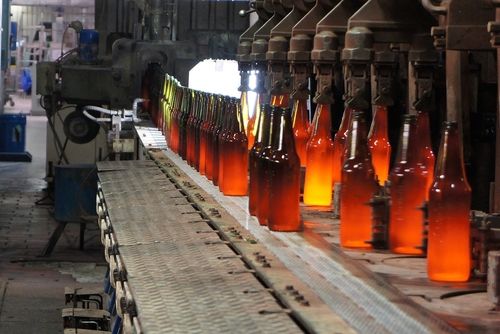Glassmakers are betting the backlash against single-use plastics can stem a decadeslong decline in the use of their bottles and jars. First they have to boost poor glass-recycling rates that undercut the material’s environmental pitch.
Once the packaging kingpin for milk, ketchup, beer and soft drinks, glass has been muscled aside by lighter, unbreakable materials such as plastic and aluminum. Today, just 1% of U.S. soda comes in glass bottles, down from nearly 58% in 1975, according to Beverage Marketing Corp., a consulting firm. Over the same period, plastic jumped to 32.5% from nothing.
Now, mounting concern about the environmental impacts of single-use plastic is dampening its appeal for some consumers. That is prompting consumer-goods companies like Nestlé SA, PepsiCo Inc. and Unilever PLC to explore refillable packaging and alternative materials.
Glassmakers see this as an opportunity to win back customers. A recent industry-funded marketing campaign in Europe saw grocery-store customers thanked by on-screen dolphins for helping the oceans when they scanned items packaged in glass.
“It’s hard for us to ignore the images borne into our minds of trillions of plastic packages floating around the Pacific Ocean,” Andres Alberto Lopez, chief executive of O-I Glass Inc., told investors last year. “Glass represents a wonderful alternative.”
The U.S.’s first new glass container plant in 12 years, a $123 million facility, is being built by Arglass Yamamura LLC in Georgia. Perrysburg, Ohio-based O-I, the world’s biggest maker of glass containers, is investing more than $60 million to build a new furnace at its French plant, its first such expansion in the region in two decades. Glassmakers also are investing in new technology to quickly swap colors and molds in a bid to woo craft brewers and small brands, in a break from the long production runs that have dominated the industry to date.
Glassmakers say their products—made from sand—are all-natural, endlessly recyclable and can be refilled many times. Glass is the only widely used food packaging material that the Food and Drug Administration deems “generally recognized as safe,” meaning it doesn’t need premarket approval. It also offers a longer shelf life for many food and drink products because it is less permeable than plastic, said Sokhna Gueye, Nestlé’s plastics sustainability manager.
Source : https://www.msn.com/en-us/money/companies/
Packaging 360 is a comprehensive knowledge sharing ecosystem for the Indian packaging industry. Our services include an online content platform to deliver news, insights and case studies; organising conferences seminars and customised training; Providing Bespoke Project Consulting, Market Research and Intelligence.







